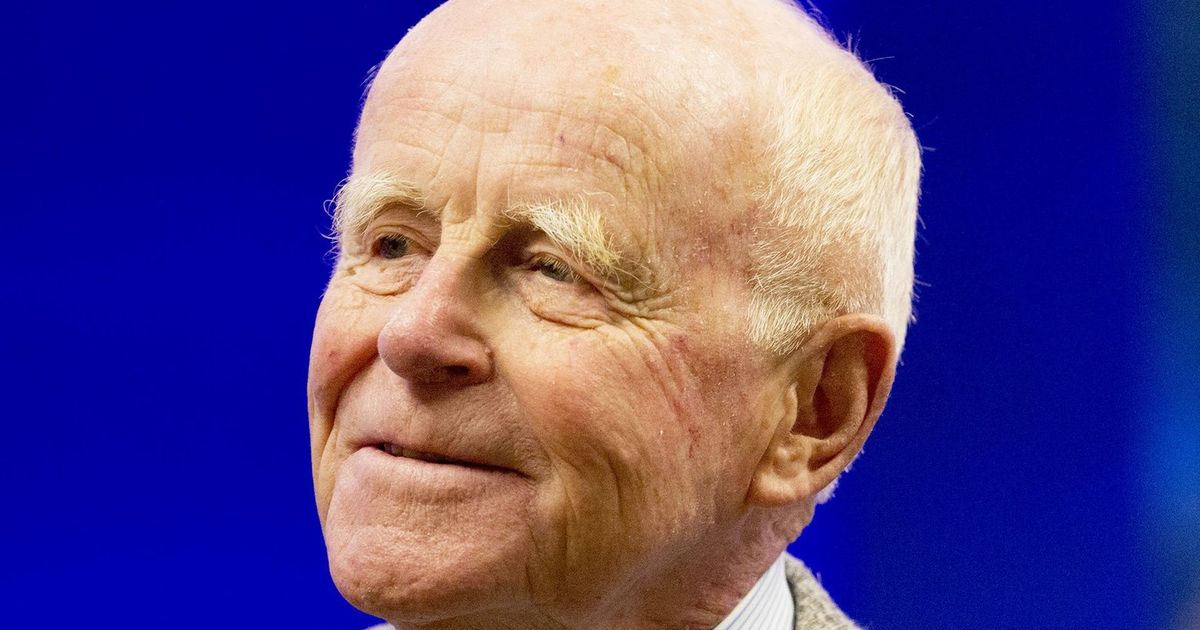Bruce Nordstrom, who helped guide the massive growth that cemented his family’s namesake Seattle-based company as a national retailer, died Saturday morning at his home in Seattle. He was 90.
Part of the third generation of family leadership that took over in 1968 and encouraged the company to go public in 1971, Nordstrom helped steer the company during a key period that included expansion throughout Washington, Oregon, Alaska and — crucially — California in the 1970s.
“Our dad will be remembered not only for his significant contributions to Nordstrom but also for his unwavering dedication to his family and friends,” sons Pete and Erik Nordstrom, president and chief executive officer of the company, respectively, said in a statement. “His passion, integrity and tireless work ethic served as an inspiration to everyone around him. But perhaps his greatest achievement was being an amazing father, husband and grandfather.”
He championed conquest in the world of retail, irked by industry smugness that dismissed a Seattle-based retailer.
Nordstrom recalled to The New York Times in 2019 that, as the company expanded to California decades earlier, “I was told in so many words by the experts, you know, ‘you guys are basically a bunch of dumb Swedes selling to another bunch of dumb Swedes, up in Seattle, in the woods up there. And you’re going to California? Do you understand how sophisticated and hip it is?’ It got under my fingernails so bad.”
By 1980, the company was the third-largest specialty retailer in the country and planned to open up to 25 new stores in the coming decade.
Nordstrom credited the company’s broad offerings, dismissing industry advice to specialize in serving a specific customer demographic. “Our goal was to sell shoes to everyone in Seattle,” he said.
Even as the store’s offerings expanded, shoes were still a draw, Nordstrom said. “That gets them in, and, in the meantime, you sell them everything else.”
Nordstrom, who studied economics at the University of Washington, held various leadership positions in his decadeslong career. Affectionately known as “Mr. Bruce” by employees, he started his career in the Nordstrom stockroom and sales floor of the flagship Seattle location.
“He loved this company. He loved the business (especially selling shoes) but most of all, he loved our people and culture,” the family said in a message to company employees Saturday. “His quiet wisdom shone through in his commitment to doing the right thing for our customers, for the people around him, and for our community.”
In 1968, he and his cousins Jim and John Nordstrom, along with cousin-in-law Jack McMillan, took over the company and made it public three years later.
He retired as co-chairman in 1995, then served on the board until the mid-2000s. That period included the launch of the company’s online sales in the late 1990s. He retired as chairman of the board in 2006.
His “strategic vision and relentless pursuit of customer excellence” propelled the company to “new heights,” the statement to employees said, shaping its future and leaving an “indelible mark” on its success.
Nordstrom also oversaw tough times in the company’s history.
The state Department of Labor and Industries alleged in 1990 that Nordstrom routinely failed to pay employees for work, such as attending meetings and delivering purchases to customers.
In the ‘90s, the retailer saw sluggish sales and earnings. Following a brief period when the company was controlled by nonfamily members, Nordstrom left retirement to become chairman in 2000, promising to help right the ship.
In the following years, Nordstrom navigated negative customer feedback after an ad campaign urging customers to “reinvent yourself” alienated some loyal shoppers.
By the mid-2000s, the company was recovering, with stock prices and sales climbing.
During Nordstrom’s final annual shareholders meeting as chairman, a longtime customer praised the company during a question-and-answer session, saying she was happy Nordstrom “destroyed” East Coast competition. “Mr. Bruce, you did something right,” she said.
He was the former president of the Downtown Seattle Association, Children’s Hospital Foundation and Seattle Goodwill. He also served as chairman of the United Way of King County Campaign in 1984.
Nordstrom is survived by his wife Jeannie — who his family said was at his side when he died — his sister Anne Gittinger, his sons Pete and Erik, daughters-in-law Brandy, Julie and Molly, and 7 grandchildren, Alex, Andy, Leigh, Sam, Sara, Micki and Chet.
His son, former co-president Blake W. Nordstrom, died in 2019 at the age of 58.
“Our dad leaves a powerful legacy as a legendary business leader, a generous community citizen and a loyal friend,” Nordstrom’s sons said.
Material from The Seattle Times archives is included in this report.








:max_bytes(150000):strip_icc()/roundup-writereditor-loved-deals-tout-f5de51f85de145b2b1eb99cdb7b6cb84.jpg)


